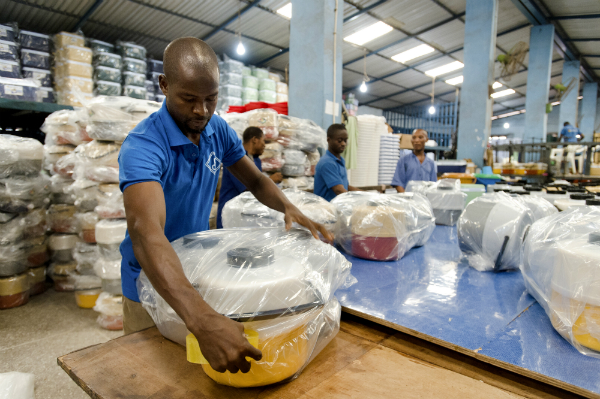Rwanda Environment Management Authority (REMA) has rejected the appeal by manufacturers of single-use plastic who had sought an extension of the grace period given to them to phase out.
In 2019, Rwanda passed a law prohibiting the manufacturing, importation, use, and sale of single-use plastic items in Rwanda.
At the time, manufacturers were given a two-year grace period which ended in September last year, after which they would phase out.
Now manufacturers are appealing for an extension of the grace period, citing the effects of Covid-19, which they say derailed efforts to switch environmentally friendly business models.
The manufacturer’s appeal was initially supported by MPs in 2019, who requested the government to give the investors more period.
“The law would be clear and important, but if the company has secured a deal to do business and had a ten-year business plan and you give them just two years, what is the basis of this, and how do you think they will adjust?” MP Theogene Munyangeyo questioned.
However, REMA has said that it will not give more grace periods to manufacturers.
“These factories have requested the extension of the grace period, but their request was rejected. Any single-use plastic item they were producing is prohibited. We all know that manufacturers tend to produce items depending on the market of their products, but at the time when the law was adopted, two factories manufacturers of straws were more dynamic,” REMA officials said.
“Manufacturers are encouraged to look for alternatives to single-use plastics which are environmentally friendly,” REMA stated.
REMA said that imported goods packaged in plastic material or single-use plastic items are subject to an environmental levy in accordance with relevant laws.’
“As clarified in the law, the progress in setting the environmental levy is following the provisions of relevant laws. The draft law is in the advanced stages of its approval,” officials said.
Meanwhile, Minister of Environment, Jeanne d’Arc Mujawamariya, recently urged more bottled water companies to switch from plastic packaging to glass bottles.
She said that the next step is to have a factory for glass bottles in Rwanda as investors are being wooed.
“We have a variety of sand as raw material that can allow us to manufacture glass bottles locally. She said that the private sector must play a critical role to achieve this.


